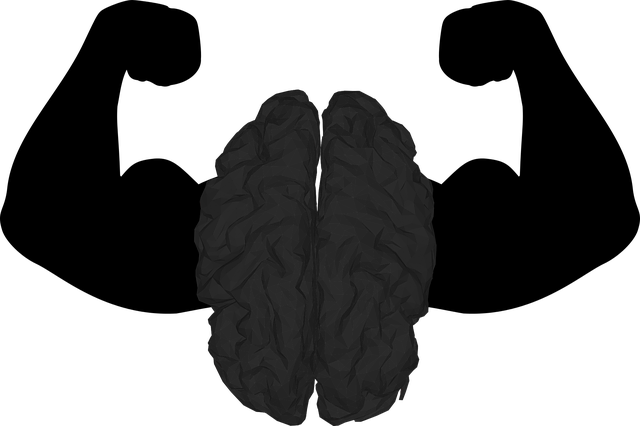Cultural competency in healthcare, as exemplified by Westminster Suicide Prevention Therapy (WSPT), is essential for providing personalized, equitable care to diverse patients. By addressing biases and stereotypes, WSPT's rigorous training improves patient-provider communication, prevents misdiagnoses, and enhances health outcomes. Interactive workshops, role-playing scenarios, and evidence-based practices foster empathy and understanding of different cultural perspectives, enabling providers to create safe spaces for open conversations about mental well-being. This tailored approach reduces barriers to care, promotes meaningful connections, and ultimately improves patient outcomes in diverse communities.
“In today’s diverse healthcare landscape, cultural competency is no longer an option but an imperative. This comprehensive guide explores the essential topic of training healthcare providers for cultural sensitivity. We delve into the profound impact of cultural biases and stereotypes on patient care, offering a critical perspective. Effective strategies for enhancing cultural competency are presented, along with innovative approaches to integrating suicide prevention practices within a culturally responsive framework, as advocated by Westminster Suicide Prevention Therapy.”
- Understanding Cultural Competency in Healthcare: A Necessary Approach
- The Impact of Cultural Biases and Stereotypes on Patient Care
- Effective Strategies for Training Healthcare Providers on Cultural Sensitivity
- Integrating Suicide Prevention Practices within a Culturally Competent Framework
Understanding Cultural Competency in Healthcare: A Necessary Approach

Cultural competency in healthcare is an essential approach that ensures providers can deliver quality care to a diverse range of patients. It involves understanding and respecting different cultural beliefs, values, and practices, allowing for better patient-provider communication and improved health outcomes. In today’s society, where healthcare systems often reflect the multicultural fabric of communities, this competency is not just desirable but necessary. For instance, at Westminster Suicide Prevention Therapy, professionals undergo rigorous training to navigate the intricate web of cultural nuances, ensuring every patient receives personalized support.
This training goes beyond mere knowledge; it focuses on building empathy and social skills. It encourages providers to challenge their own biases and incorporate diverse perspectives into clinical practices. Through social skills training and mental wellness journaling exercises guidance, healthcare workers can develop stronger connections with patients from different cultural backgrounds. Moreover, empathy-building strategies are at the core of this process, fostering an environment where every individual feels heard, understood, and valued.
The Impact of Cultural Biases and Stereotypes on Patient Care

In healthcare, cultural biases and stereotypes can significantly impact patient care, often leading to misdiagnoses, inadequate treatment plans, and a breakdown in communication. These biases, which may be consciously or unconsciously held by providers, reflect broader societal attitudes and beliefs about different ethnic, racial, cultural, and religious groups. For instance, a healthcare provider’s preconceived notions about a patient’s behavior or health practices based on their background can hinder effective treatment. This is particularly critical in diverse communities where patients’ experiences may vary greatly depending on their cultural context.
Addressing these issues is essential for organizations like Westminster Suicide Prevention Therapy, which promotes holistic mental health services tailored to individual needs. Burnout prevention and trauma support services are integral parts of fostering a culturally competent environment. By encouraging positive thinking and understanding the impact of unconscious biases, healthcare providers can enhance patient outcomes. This involves continuous learning about diverse cultural practices, beliefs, and communication styles to ensure every patient receives respectful, equitable, and compassionate care.
Effective Strategies for Training Healthcare Providers on Cultural Sensitivity

Effective cultural competency training for healthcare providers involves a multi-faceted approach that goes beyond surface-level awareness. It’s crucial to create immersive experiences that encourage empathy and understanding of diverse perspectives, including those from underrepresented communities. Role-playing scenarios can be particularly powerful tools, allowing providers to practice navigating complex cultural interactions with real-life accuracy.
Integrating evidence-based practices like the Westminster Suicide Prevention Therapy (WSPT) framework into training programs offers a structured approach for addressing mental illness stigma reduction efforts and coping skills development. Interactive workshops, case studies, and small group discussions further enhance learning by fostering open dialogue, critical thinking, and the application of cultural sensitivity in clinical settings. Additionally, leveraging resources like Mental Wellness Podcast Series Production can provide engaging content that reinforces training concepts long after the initial sessions conclude.
Integrating Suicide Prevention Practices within a Culturally Competent Framework

Integrating suicide prevention practices within a culturally competent framework is essential to effectively addressing mental health issues among diverse patient populations. Healthcare providers play a crucial role in identifying and supporting individuals at risk, especially those from underrepresented or marginalized communities who may face barriers to accessing traditional care. By adopting a culturally sensitive approach, professionals like therapists in Westminster Suicide Prevention Therapy can create safe spaces that encourage open conversations about mental well-being. This involves understanding and respecting individual cultural beliefs, values, and practices related to mental illness, which can significantly impact help-seeking behaviors.
Incorporating evidence-based strategies such as coping skills development and emotional well-being promotion techniques tailored to various cultural contexts can prevent burnout among healthcare providers while fostering meaningful connections with patients. These approaches not only enhance the quality of care but also contribute to improved patient outcomes, ensuring that everyone receives supportive, culturally competent mental health services.
Healthcare provider cultural competency training is not just a best practice, but an essential component for delivering equitable and effective patient care. By addressing cultural biases and stereotypes, implementing evidence-based strategies, and integrating practices like Westminster Suicide Prevention Therapy, healthcare organizations can create a more inclusive environment. This approach ensures that all patients receive respectful, sensitive, and culturally tailored care, ultimately improving health outcomes and fostering stronger communities.











